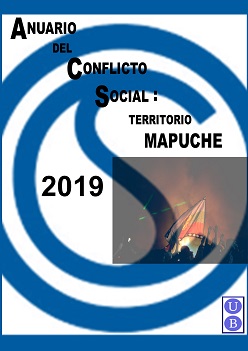International Law, Holdups and Challenges. Implications for the Implementation of the Territorial Rights of the Mapuche People
DOI:
https://doi.org/10.1344/ACS2020.11.9Keywords:
human rights, indigenous people’s rights, international law, indigenous policies, Mapuche peopleAbstract
In this article, we analyse the application of international standards concerning the territorial rights of indigenous peoples to the situation of the Mapuche people in Chile. In the first section, we review international standards as well as their evolution on being deployed by the drafting of Interamerican legislation. Also, we deal with the statements made by several human rights international organizations concerning the fulfilment by the Chilean government of its accepted international obligations concerning such issues. In the second section, we deal with the Chilean regulations and we check whether they fit international standards. Then, we identify the gaps in public politics regarding the recognition of the Mapuche people and the restitution of the lands claimed by it, and we study the criminalization strategy launched by the state against the Mapuche leadership in response to their territorial claims, something which has brought about international condemnation of the Chilean regime for its failing to comply with its obligations towards a group of members of the Mapuche people led by two traditional authorities, namely, lonkos [or community leaders] Aniceto Norin Catriman and Pascual Pichun (already deceased). The fourth and final section deals with the challenges to international posed law by the compliance by domestic law with the sentences of the Interamerican Human Rights Court, in particular, with reference to the case Norin et al vs the Chilean State
Downloads
Published
How to Cite
Issue
Section
License
Copyright (c) 2021 Nancy Yáñez Fuenzalida

This work is licensed under a Creative Commons Attribution 4.0 International License.
AUTHORS RETAIN COPYRIGHT. CREATIVE COMMONS
The authors who publish in this journal agree to the following terms:
- The authors retain the copyright and grant the journal the right of first publication of the work, which will be disseminated following the Creative Commons Attribution license.
- Authors are free to establish additional independent contractual agreements for the non-exclusive distribution of the version of the work published in the journal (such as publication in an institutional or thematic repository, their personal website or a book), provided have your initial publication in this journal recognized.
- Texts will be published under a Creative Commons Attribution License that allows others to share the work, provided they include an acknowledgement of the work’s authorship, its initial publication in this journal and the terms of the license.
- Self-archiving of pre-print and post-print versions is allowed.
Privacy statement
The email addresses and names entered in this publication will be used exclusively for the purposes declared and will not be used for any other urposes or made available to third parties.







